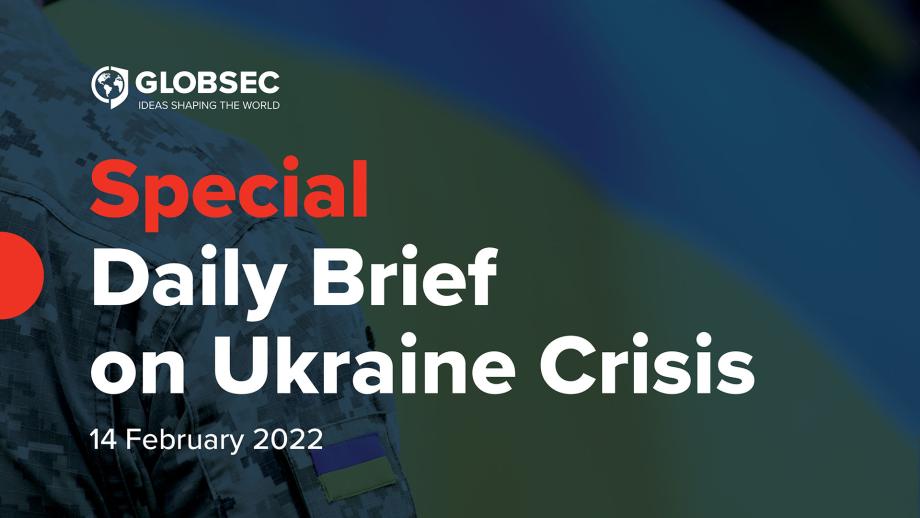Special Daily Brief on Ukraine Crisis: 14.02.2022

As Ukraine faces an imminent Russian aggression, we are looking into the most crucial developments of the last 48 hours.
Central Europe preparing for refugee crises
Polish government asked local authorities to provide assessment of capacities to receive refugees from Ukraine. Local authorities were given 48 hours to provide the lists of existing refugee centres, public utility buildings that can be converted into refugee centres and costs assessments. Poland’s Deputy Minister of Interior Maciej Wasik estimates that in case of a Russian armed attack up to one million Ukrainian refugees may arrive in Poland. Whilst Poland is already a home of approximately 1.300.000 Ukrainian migrant workers, receiving refugees would require creating additional border crossing points, stockpiling essential food and medical supplies, as argued by the Minister.
Meanwhile Hungarian Prime Minister Victor Orban also argued that the country may be faced with a refugee crisis at its Eastern border. Orban is known for his anti-refugee stance during the 2015 immigration crisis, which helped his party in winning elections and staying in power. Hungary is due to hold parliamentary elections in April 2022.
Evacuations from Ukraine/flights suspension
A host of nations that ordered the evacuation of their diplomatic personnel from Kiev has been growing to include Australia, Japan, South Korea, Israel, United Kingdom, New Zealand, Denmark, and Germany. Czechia and Slovakia started evacuating families of diplomats and both are now advising against traveling to Ukraine. Czechia has also advised against travel to Belarus and have called on its citizens to leave that country. Poland has also issued an advice to avoid travel to Ukraine.
The UK and US staff of the OSCE monitoring mission have been recalled. The US is also withdrawing its 150 Florida National Guard troops, who were serving in training mission in Ukraine.
Ukraine denied the news of the closure of its air space, calling this information non-sensical. However, the Dutch KLM airlines decided to suspend flights to Kiev and the German Lufthansa said it is considering suspension.
Phone Diplomacy
President Biden held a 62-minute telephone conversation with President Putin, which, according to both American and Russian accounts, did not bring tangible results. President Biden underlined that the US are open to diplomatic solution to the crisis, but that they are also prepared to face other scenarios. The conversation between Secretary of State Blinken and Minister Lavrov seems to have delivered a similar result, with Blinken reiterating in a tweet that ‘further Russian aggression would be met with a resolute, massive, and united Transatlantic response.’
Russia has offered its own readout of both conversations, stressing its demand for security guarantees from NATO. Russia has also called the news of its allegedly imminent intension to attack Ukraine a ‘hysteria’ fabricated by the West to encourage Ukraine to sabotage the Minsk agreement and taking a military action against the separatists in Donbas.
Meanwhile one of Russia’s top diplomats, Polishchuk, has stated conditions of possible de-escalation. According to him these must include an immediate end to the deliveries of arms to Ukraine, the withdrawal of foreign military advisors, and the end of any kind of military cooperation between Ukraine and the West. Finally, NATO must commit itself to never admit Ukraine as a full member.
Ukraine
Ukraine President Vladimir Zelensky called on the Western media to cease the speculation about the immediacy of Russian attack, which according to New York Times could be launched on Wednesday, the 16th of February. According to Ukrainian President this speculation was hurtful to Ukrainian economy and its population as it was creating panic. Zelensky also stressed that it was unfounded and unconfirmed by the Ukrainian intelligence.
Meanwhile Ukraine’s Minister of Defence Olaksiy Reznikow stressed that today’s Ukraine is ready to face enemy and perfectly capable of defending the Eastern city of Kharkiv, based 40 kilometres from Russia’s border.
